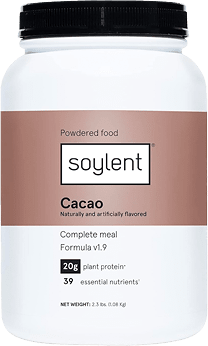Knowledge BaseYou're Questions Answered
Can soy protein powder cause diarrhea?
Soy protein powder, while a popular plant-based protein supplement, can sometimes cause digestive issues, including diarrhea, in certain individuals. This reaction can be due to various factors, such as the individual's sensitivity to soy, the presence of specific additives in the product, or the body's adjustment to increased protein intake. Understanding these potential causes can help users manage and mitigate these symptoms.
Potential Causes of Diarrhea from Soy Protein Powder
1. Soy Sensitivity or Allergy
Some individuals may have a sensitivity or allergy to soy, which can lead to digestive symptoms such as diarrhea, bloating, and abdominal pain. Soy allergies can range from mild to severe, and even small amounts of soy protein can trigger symptoms in sensitive individuals1. If you suspect a soy allergy or sensitivity, it's essential to consult with a healthcare provider for proper diagnosis and guidance.
2. Additives and Fillers
Many soy protein powders contain additional ingredients such as artificial sweeteners (e.g., sucralose, aspartame), sugar alcohols (e.g., sorbitol, erythritol), and other additives that can cause digestive discomfort. Sugar alcohols, in particular, are known to have a laxative effect in some people, leading to diarrhea when consumed in large amounts2. Choosing a soy protein powder with minimal additives and natural ingredients may help reduce this risk.
3. Increased Fiber Content
Soy protein powders, especially those made from whole soybeans, may contain a higher amount of fiber. While fiber is beneficial for digestive health, a sudden increase in dietary fiber can cause digestive issues like diarrhea, gas, and bloating, particularly if the body is not accustomed to high fiber intake3.
4. High Protein Intake
For some individuals, increasing protein intake rapidly, including from sources like soy protein powder, can overwhelm the digestive system. This can sometimes result in symptoms like diarrhea as the body adjusts to the higher protein levels4. It's advisable to gradually increase protein intake to allow the digestive system to adapt.
Mitigating Digestive Issues from Soy Protein Powder
If you experience diarrhea after consuming soy protein powder, consider the following strategies to manage and mitigate symptoms:
- Start Slowly: If you're new to soy protein powder, begin with a smaller serving and gradually increase the amount to help your digestive system adjust.
- Check for Additives: Choose soy protein powders with minimal additives, natural sweeteners, and no sugar alcohols to reduce the risk of digestive discomfort.
- Monitor Fiber Intake: Pay attention to your overall dietary fiber intake and adjust accordingly. If consuming a high-fiber soy protein powder, balance it with other low-fiber foods.
- Consult a Healthcare Provider: If you suspect a soy allergy or sensitivity, consult with a healthcare professional for proper diagnosis and management.
- Bahna, S. L. (2002). Adverse food reactions. Allergology International, 51(2), 145-154.
- Livesey, G. (2001). Tolerance of low-digestible carbohydrates: A general view. British Journal of Nutrition, 85(S1), S7-S16.
- Slavin, J. L. (2005). Dietary fiber and body weight. Nutrition, 21(3), 411-418.
- Phillips, S. M., & Van Loon, L. J. C. (2011). Dietary protein for athletes: From requirements to optimum adaptation. Journal of Sports Sciences, 29(sup1), S29-S38.
Related Questions
Protein vs Protein

Your Answer
We are a participant in the Amazon Services LLC Associates Program, an affiliate advertising program designed to provide a means for us to earn fees by linking to Amazon.com and affiliated sites.



